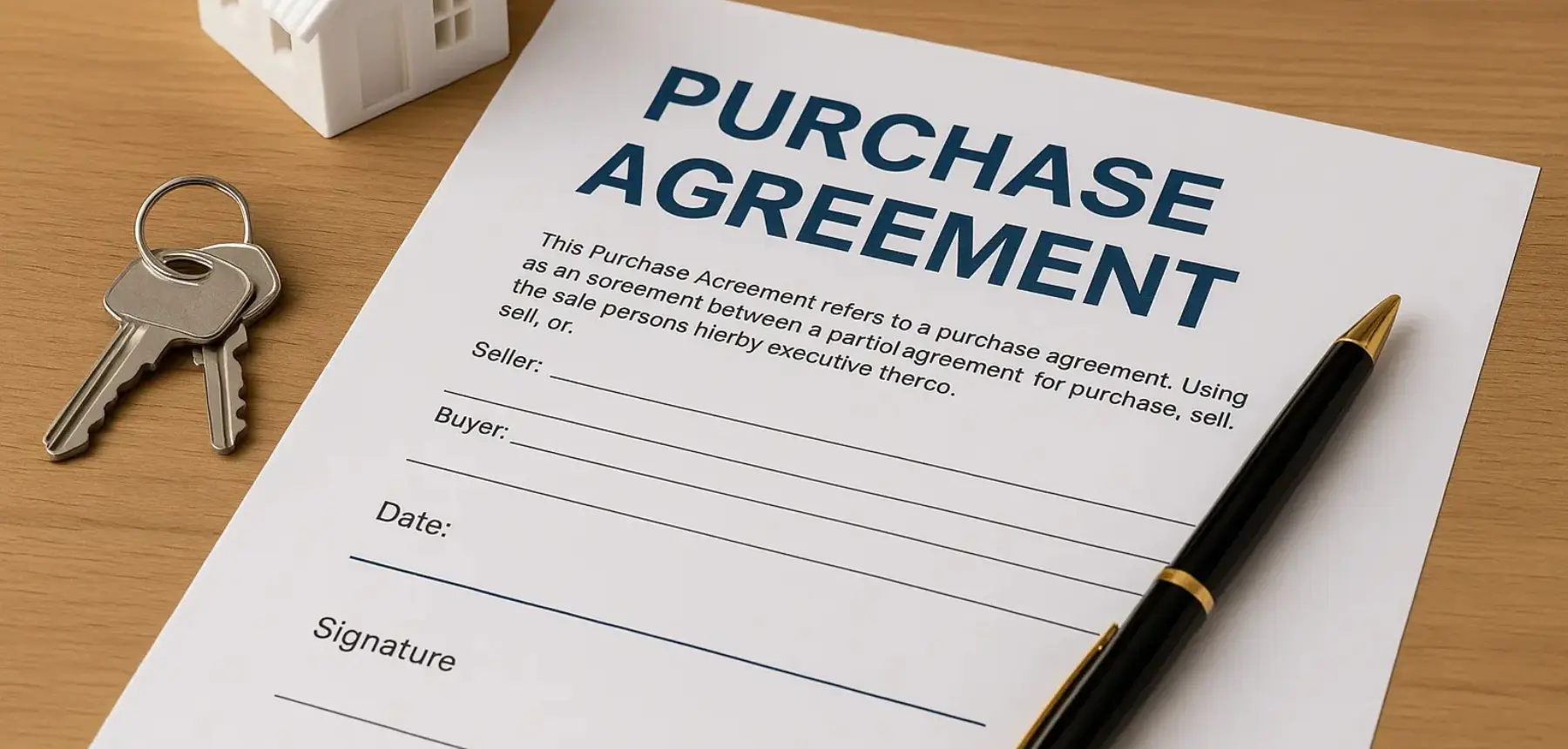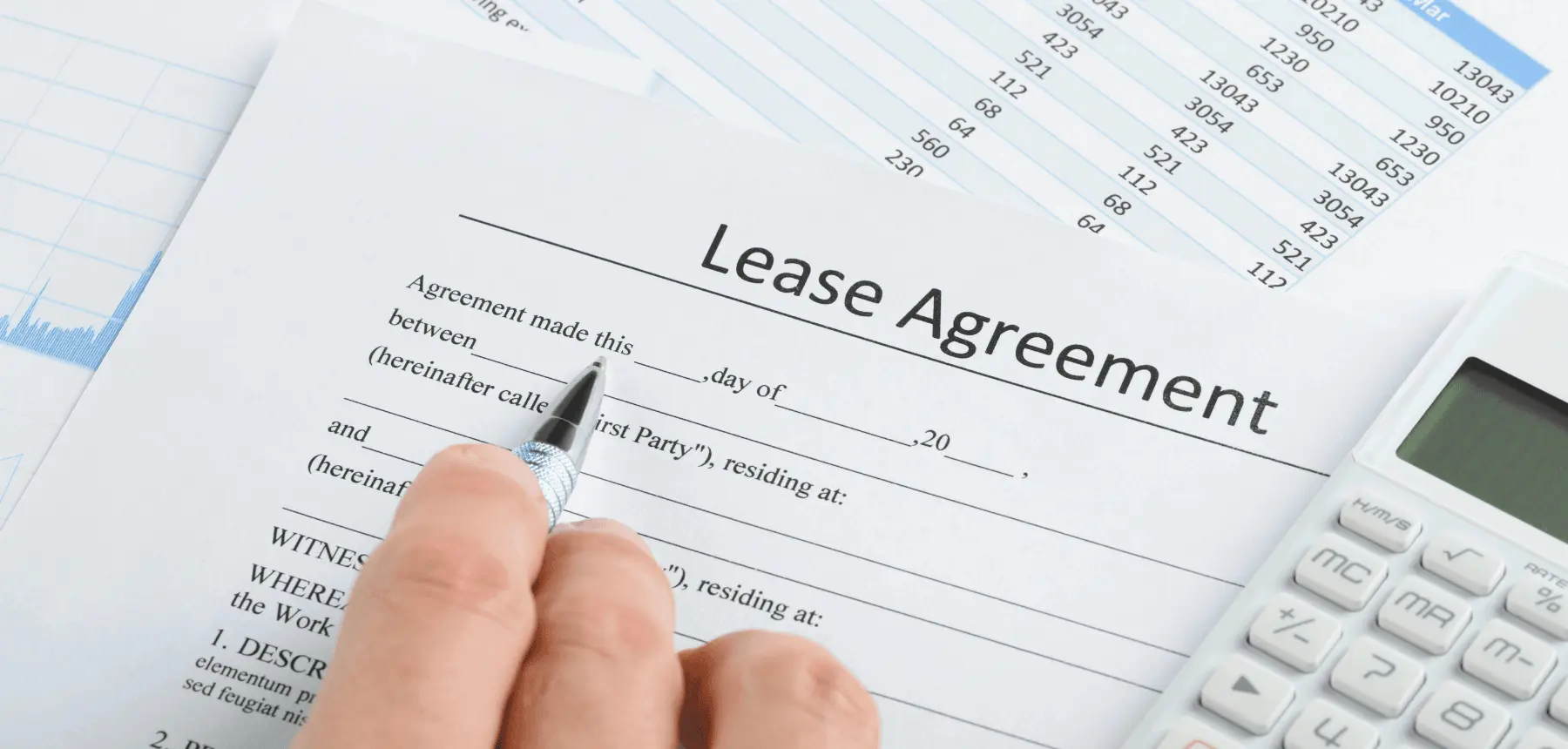

How Real Estate Agents Use eSignatures to Close Deals Faster

In the real estate world, time kills deals. Waiting days for clients to print, sign, scan, and mail contracts can cost agents valuable opportunities. The solution? Using an electronic signature to simplify the signing process and keep deals moving.
Today, modern agents use secure electronic signature platforms to finalize contracts, handle disclosures, and even allow tenants to sign lease online, all while ensuring compliance with legal standards.
This guide explores how real estate professionals use electronic signatures to accelerate sales, reduce paperwork, and improve client satisfaction.

Why Real Estate Needs Electronic Signatures
The real estate industry is highly competitive, and small delays can mean losing a sale to another broker or firm. Traditional signing processes slow things down, while digital signing keeps momentum moving forward.
The Problem with Wet Ink Signatures
Traditionally, every transaction relied on a wet ink signature. From purchase agreements to lease contracts, clients had to meet in person or send documents back and forth. This created delays, errors, and lost documents.
With an electronic signature, agents eliminate these hurdles, ensuring that paperwork is signed quickly and securely.
In addition, paper contracts increase costs and administrative tasks. Agents or brokerages often spend time scanning, filing, or physically storing agreements. Going digital reduces these tasks significantly and allows firms to centralize documents in secure online archives.
How eSignatures Transform Real Estate Deals
- Faster closings: No more overnight shipping or scanning documents.
- Better client experience: Buyers and tenants can sign lease online from their phones.
- Legally binding contracts: Modern platforms guarantee legally binding esignatures recognized by courts.
- Security: Features like e signature verification and audit trails protect agents from disputes.
Blueink offers real estate e-signature solutions designed specifically for property professionals.
Key Use Cases for Real Estate eSignatures
Electronic signatures streamline multiple aspects of real estate beyond simple contracts. From high-value purchases to routine addendums, they provide consistency, speed, and security.
Purchase Agreements and Sales Contracts

One of the most time-sensitive documents in real estate is the purchase agreement. Using digital contract signing, agents can send agreements immediately and track their status.
Blueink’s real-time document tracking ensures agents know exactly when a client has viewed, signed, or completed a contract.
This transparency reduces the anxiety of waiting for an update and allows agents to manage multiple deals at once. Clients appreciate this level of visibility, and it gives brokers a professional edge.
Lease Agreements

Agents and landlords can now allow tenants to sign lease online, eliminating days of delays. Clients often ask: “Can you sign a lease online?” The answer is yes, and the process is legally binding.
By using legally binding esignatures, agents protect both landlords and tenants, while platforms like Blueink store documents securely in the cloud.
This is especially useful for property managers handling multiple units, where tracking paper leases is cumbersome. Centralized digital records ensure that renewals, deposits, and terms are easy to find and verify.
Disclosures and Addendums

Whether it is a lead paint disclosure or an addendum vs amendment to a contract, agents no longer have to chase down paperwork. With an online document signing service, clients can sign from anywhere, speeding up compliance requirements.
Digital signatures also reduce the risk of clients missing critical disclosures, since required fields must be completed before signing. This protects agents legally and ensures regulatory compliance.
NDAs for Commercial Real Estate
.webp)
Commercial agents often use non-disclosure agreements when sharing financials or property details. With a secure electronic signature, these NDAs are enforceable and protected from forgery.
This simplifies the process of sharing confidential information with potential buyers, tenants, or investors, creating more trust in the transaction.
The Legal Validity of eSignatures in Real Estate
Legal enforceability is a top concern for agents and their clients. Fortunately, eSignatures meet strict standards and are recognized globally.
Legally Binding eSignatures in Real Estate
Courts recognize legally binding esignatures as valid for most real estate contracts, thanks to ESIGN and UETA in the U.S. As long as e signature verification and audit trails exist, contracts are enforceable.
Blueink enhances enforceability with a Certificate of Evidence for every signed document.
When Wet Ink Signatures Are Still Required
Although most real estate documents can be signed electronically, some jurisdictions still require wet ink signatures for deeds, wills, or notarized documents.
That is why it is important for agents to know when a wet ink signature is mandatory, and when an electronic signature will suffice.
In practice, this often means using a hybrid model. Most contracts are digital, but agents maintain relationships with notaries or closing attorneys for the few cases that require ink.
Security and Verification for Real Estate Contracts
Fraud prevention is a critical part of any property transaction. Secure electronic signature platforms address this concern directly.
Why eSignature Verification Matters
Real estate involves high-value transactions, which makes fraud prevention critical. eSignature verification provides:
- Timestamps
- IP tracking
- Multi-factor authentication
This ensures every electronic signature is authentic and defensible in court.
Secure Electronic Signatures for Client Protection
A secure electronic signature platform encrypts documents and prevents tampering. This protects agents from legal challenges and gives clients peace of mind.
Blueink offers secure electronic signature features built to meet real estate compliance needs.
For brokerages, having a centralized system with encryption also strengthens their reputation with clients, who increasingly prioritize security when choosing real estate professionals.
Benefits of Digitizing Real Estate Workflows
Digitization does not just speed up deals. It also creates stronger client relationships and lowers operational risk.
Speeding Up Transactions
With digital contract signing, deals that once took weeks can be completed in hours. Agents no longer wait for clients to return paper documents.
Improving Client Experience
Clients expect convenience. Whether it is a tenant asking “Can you sign a lease online?” or a buyer closing from another state, online document signing services deliver flexibility and satisfaction.
Reducing Risk
By replacing paper with secure electronic signatures, agents protect against forgery, lost documents, and compliance issues. With legally binding esignatures, disputes are minimized.
Digital workflows also mean agents spend less time on administrative tasks and more time serving clients, giving them a competitive advantage.
How to Get Started with eSignatures in Real Estate
Adopting eSignatures is straightforward, but success comes from choosing the right platform and training staff to use it effectively.
- Choose an electronic signature software with compliance and security built-in.
- Upload your contracts, disclosures, and leases.
- Assign fields for digital contract signing (initials, signatures, dates).
- Send documents via email or SMS for immediate completion.
- Track progress with real-time document tracking.
These steps can be implemented in days, and once established, agents see immediate improvements in turnaround times and client satisfaction.
Best Practices for Agents
Consistency is key. Establishing clear internal policies ensures every deal benefits from digital signing.
- Always use a secure electronic signature platform, not just scanned PDFs.
- Verify local regulations for wet ink signature requirements.
- Educate clients on the validity of legally binding esignatures.
- Store all contracts in a compliant system.
- Use integrations with CRMs via Blueink integrations to automate workflows.
Some firms also assign compliance officers to periodically review digital signing practices to ensure that every document meets local and federal standards.
The Future of Real Estate Transactions
As real estate becomes more digital, the role of electronic signatures will only expand. Soon, every contract, from purchase agreements to lease renewals, will use secure electronic signatures.
Expect:
- Full acceptance of digital contract signing in all states
- Wider use of online document signing services for multi-party deals
- Increased reliance on e signature verification to prevent fraud
- Less dependence on wet ink signatures
Blueink leads this transformation with real estate e-signature solutions tailored for agents and brokers.
Digital Transformation in Real Estate
The real estate industry thrives on speed, trust, and security. By using electronic signatures, agents can close deals faster, improve client satisfaction, and protect against risk.
From allowing tenants to sign lease online to using secure electronic signatures for purchase agreements, the digital transformation of real estate is here to stay.
Blueink’s real estate e-signature solutions give agents the tools they need to compete in a fast-moving market while ensuring every contract is valid, secure, and compliant.
Ready to digitize your real estate document workflows? Schedule a free personalized demo with us today to learn how Blueink can improve workflow efficiency and your bottom line.
Frequently Asked Questions (FAQ)
1. Can tenants sign lease agreements online?
Yes, with sign lease online features, tenants can complete legally valid contracts instantly.
2. Are electronic signatures valid for property sales?
Yes, legally binding esignatures are accepted for most real estate contracts. Only certain notarized deeds may still require a wet ink signature.
3. How secure are electronic signatures for real estate?
Platforms like Blueink use secure electronic signatures with encryption and e signature verification for full protection.
4. What is the best way to manage contracts digitally?
Use an online document signing service like Blueink for compliance, tracking, and storage.
5. Do real estate eSignatures save time?
Absolutely. With digital contract signing, deals close faster, clients are happier, and agents win more business.
Disclaimer
Blueink is not a law firm and does not provide legal advice. This page is for informational purposes only and should not be considered a substitute for professional legal counsel. If you have questions about the validity or enforceability of eSignatures or digital signatures, we recommend consulting with a licensed attorney. Use of Blueink’s services is subject to our Terms of Use and Privacy Policy.


Weekly Newsletter
Get the latest updates, tips, and exclusive offers. Sign up for our weekly newsletter and stay informed!
Recent post
February 6, 2026
February 4, 2026
January 26, 2026
January 21, 2026
January 13, 2026
In the real estate world, time kills deals. Waiting days for clients to print, sign, scan, and mail contracts can cost agents valuable opportunities. The solution? Using an electronic signature to simplify the signing process and keep deals moving.
Today, modern agents use secure electronic signature platforms to finalize contracts, handle disclosures, and even allow tenants to sign lease online, all while ensuring compliance with legal standards.
This guide explores how real estate professionals use electronic signatures to accelerate sales, reduce paperwork, and improve client satisfaction.

Why Real Estate Needs Electronic Signatures
The real estate industry is highly competitive, and small delays can mean losing a sale to another broker or firm. Traditional signing processes slow things down, while digital signing keeps momentum moving forward.
The Problem with Wet Ink Signatures
Traditionally, every transaction relied on a wet ink signature. From purchase agreements to lease contracts, clients had to meet in person or send documents back and forth. This created delays, errors, and lost documents.
With an electronic signature, agents eliminate these hurdles, ensuring that paperwork is signed quickly and securely.
In addition, paper contracts increase costs and administrative tasks. Agents or brokerages often spend time scanning, filing, or physically storing agreements. Going digital reduces these tasks significantly and allows firms to centralize documents in secure online archives.
How eSignatures Transform Real Estate Deals
- Faster closings: No more overnight shipping or scanning documents.
- Better client experience: Buyers and tenants can sign lease online from their phones.
- Legally binding contracts: Modern platforms guarantee legally binding esignatures recognized by courts.
- Security: Features like e signature verification and audit trails protect agents from disputes.
Blueink offers real estate e-signature solutions designed specifically for property professionals.
Key Use Cases for Real Estate eSignatures
Electronic signatures streamline multiple aspects of real estate beyond simple contracts. From high-value purchases to routine addendums, they provide consistency, speed, and security.
Purchase Agreements and Sales Contracts

One of the most time-sensitive documents in real estate is the purchase agreement. Using digital contract signing, agents can send agreements immediately and track their status.
Blueink’s real-time document tracking ensures agents know exactly when a client has viewed, signed, or completed a contract.
This transparency reduces the anxiety of waiting for an update and allows agents to manage multiple deals at once. Clients appreciate this level of visibility, and it gives brokers a professional edge.
Lease Agreements

Agents and landlords can now allow tenants to sign lease online, eliminating days of delays. Clients often ask: “Can you sign a lease online?” The answer is yes, and the process is legally binding.
By using legally binding esignatures, agents protect both landlords and tenants, while platforms like Blueink store documents securely in the cloud.
This is especially useful for property managers handling multiple units, where tracking paper leases is cumbersome. Centralized digital records ensure that renewals, deposits, and terms are easy to find and verify.
Disclosures and Addendums

Whether it is a lead paint disclosure or an addendum vs amendment to a contract, agents no longer have to chase down paperwork. With an online document signing service, clients can sign from anywhere, speeding up compliance requirements.
Digital signatures also reduce the risk of clients missing critical disclosures, since required fields must be completed before signing. This protects agents legally and ensures regulatory compliance.
NDAs for Commercial Real Estate
.webp)
Commercial agents often use non-disclosure agreements when sharing financials or property details. With a secure electronic signature, these NDAs are enforceable and protected from forgery.
This simplifies the process of sharing confidential information with potential buyers, tenants, or investors, creating more trust in the transaction.
The Legal Validity of eSignatures in Real Estate
Legal enforceability is a top concern for agents and their clients. Fortunately, eSignatures meet strict standards and are recognized globally.
Legally Binding eSignatures in Real Estate
Courts recognize legally binding esignatures as valid for most real estate contracts, thanks to ESIGN and UETA in the U.S. As long as e signature verification and audit trails exist, contracts are enforceable.
Blueink enhances enforceability with a Certificate of Evidence for every signed document.
When Wet Ink Signatures Are Still Required
Although most real estate documents can be signed electronically, some jurisdictions still require wet ink signatures for deeds, wills, or notarized documents.
That is why it is important for agents to know when a wet ink signature is mandatory, and when an electronic signature will suffice.
In practice, this often means using a hybrid model. Most contracts are digital, but agents maintain relationships with notaries or closing attorneys for the few cases that require ink.
Security and Verification for Real Estate Contracts
Fraud prevention is a critical part of any property transaction. Secure electronic signature platforms address this concern directly.
Why eSignature Verification Matters
Real estate involves high-value transactions, which makes fraud prevention critical. eSignature verification provides:
- Timestamps
- IP tracking
- Multi-factor authentication
This ensures every electronic signature is authentic and defensible in court.
Secure Electronic Signatures for Client Protection
A secure electronic signature platform encrypts documents and prevents tampering. This protects agents from legal challenges and gives clients peace of mind.
Blueink offers secure electronic signature features built to meet real estate compliance needs.
For brokerages, having a centralized system with encryption also strengthens their reputation with clients, who increasingly prioritize security when choosing real estate professionals.
Benefits of Digitizing Real Estate Workflows
Digitization does not just speed up deals. It also creates stronger client relationships and lowers operational risk.
Speeding Up Transactions
With digital contract signing, deals that once took weeks can be completed in hours. Agents no longer wait for clients to return paper documents.
Improving Client Experience
Clients expect convenience. Whether it is a tenant asking “Can you sign a lease online?” or a buyer closing from another state, online document signing services deliver flexibility and satisfaction.
Reducing Risk
By replacing paper with secure electronic signatures, agents protect against forgery, lost documents, and compliance issues. With legally binding esignatures, disputes are minimized.
Digital workflows also mean agents spend less time on administrative tasks and more time serving clients, giving them a competitive advantage.
How to Get Started with eSignatures in Real Estate
Adopting eSignatures is straightforward, but success comes from choosing the right platform and training staff to use it effectively.
- Choose an electronic signature software with compliance and security built-in.
- Upload your contracts, disclosures, and leases.
- Assign fields for digital contract signing (initials, signatures, dates).
- Send documents via email or SMS for immediate completion.
- Track progress with real-time document tracking.
These steps can be implemented in days, and once established, agents see immediate improvements in turnaround times and client satisfaction.
Best Practices for Agents
Consistency is key. Establishing clear internal policies ensures every deal benefits from digital signing.
- Always use a secure electronic signature platform, not just scanned PDFs.
- Verify local regulations for wet ink signature requirements.
- Educate clients on the validity of legally binding esignatures.
- Store all contracts in a compliant system.
- Use integrations with CRMs via Blueink integrations to automate workflows.
Some firms also assign compliance officers to periodically review digital signing practices to ensure that every document meets local and federal standards.
The Future of Real Estate Transactions
As real estate becomes more digital, the role of electronic signatures will only expand. Soon, every contract, from purchase agreements to lease renewals, will use secure electronic signatures.
Expect:
- Full acceptance of digital contract signing in all states
- Wider use of online document signing services for multi-party deals
- Increased reliance on e signature verification to prevent fraud
- Less dependence on wet ink signatures
Blueink leads this transformation with real estate e-signature solutions tailored for agents and brokers.
Digital Transformation in Real Estate
The real estate industry thrives on speed, trust, and security. By using electronic signatures, agents can close deals faster, improve client satisfaction, and protect against risk.
From allowing tenants to sign lease online to using secure electronic signatures for purchase agreements, the digital transformation of real estate is here to stay.
Blueink’s real estate e-signature solutions give agents the tools they need to compete in a fast-moving market while ensuring every contract is valid, secure, and compliant.
Ready to digitize your real estate document workflows? Schedule a free personalized demo with us today to learn how Blueink can improve workflow efficiency and your bottom line.
Frequently Asked Questions (FAQ)
1. Can tenants sign lease agreements online?
Yes, with sign lease online features, tenants can complete legally valid contracts instantly.
2. Are electronic signatures valid for property sales?
Yes, legally binding esignatures are accepted for most real estate contracts. Only certain notarized deeds may still require a wet ink signature.
3. How secure are electronic signatures for real estate?
Platforms like Blueink use secure electronic signatures with encryption and e signature verification for full protection.
4. What is the best way to manage contracts digitally?
Use an online document signing service like Blueink for compliance, tracking, and storage.
5. Do real estate eSignatures save time?
Absolutely. With digital contract signing, deals close faster, clients are happier, and agents win more business.